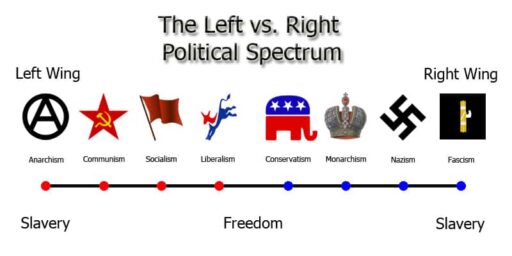Newt Gingrich called the project, led by black writers, “propaganda.”
On Sunday, the New York Times Magazine published perhaps its most ambitious work on race and slavery to date. The 1619 Project, which marks the 400th anniversary of the arrival of African slaves to Virginia, seeks to reframe the country’s thinking about slavery and how intertwined the practice of slavery has been in shaping the nation.
“This project is, above all, an attempt to set the record straight. To finally, in this 400th year, tell the truth about who we are as a people and who we are as a nation,” New York Times Magazine reporter Nikole Hannah-Jones said during a launch event for the series, which features reported essays, photo essays, and poems.
Jones, whose work on race earned her the prestigious MacArthur Fellowship, was the brainchild behind the 1619 Project. She added: “It is time to stop hiding from our sins and confront them. And then in confronting them, it is time to make them right.”
The series has largely earned praise from academics, journalists, and politicians alike. It has also been harshly criticized by some conservatives for talking about the enslavement of African people through “a racial lens” — meaning through the point of view of black Americans.
Some conservatives don’t like black journalists leading narratives on race
Former Rep. Newt Gingrich attacked the 1619 Project on Twitter on Sunday, tweeting that the New York Times Magazine series amounted to “brainwashing,” before taking his critiques to Fox and Friends Monday morning.
The NY Times 1619 Project should make its slogan “All the Propaganda we want to brainwash you with”.it is a repudiation of the original NY Times motto.
— Newt Gingrich (@newtgingrich) August 18, 2019
Also, on Monday, conservative commentator Eric Erickson wrote on his blog the Resurgent that the 1619 Project was a worthwhile endeavor, but one that failed when the New York Times put the project in the hands of opinion writers “who profit from stoking and fueling racial grievances.” It was a sentiment he tweeted the day before about writers profiting from “seeing things through racial lenses and keeping racial tension aflame as much as Trump does.”
The New York Times undertook a worthy project to educate the public on the history of slavery. But they handed much of it to opinion writers who profit from seeing things through racial lenses and keeping racial tension aflame as much as Trump does.
— Erick Erickson (@EWErickson) August 19, 2019
At the heart of both men’s criticism is that the New York Times’ focus on race is part of what they and other conservatives see as a broader decline at the newspaper. It’s the type of criticism the institution often hears from President Donald Trump, who has referred to the newspaper as the “failing New York Times.”
Gingrich and Erickson point to a recent staff town hall meeting where executive editor Dean Baquet faced criticism for the newspaper’s reluctance to explicitly call comments by the president racist. In the meeting, Baquet said that there were times in which the newspaper’s coverage of Trump had been too harsh. He also referenced how the paper had to quickly pivot in its coverage of Russia-Trump collusion story when it became clear the Meuller investigation would not provide a smoking gun for impeachment.
A transcript of Baquet’s crisis-management meeting became its own smoking gun for conservatives over the past few days. During his Fox and Friends appearance, Gingrich closed his remarks by saying: “The New York Times’ editor, he basically said, look, we blew it on Russian collusion, didn’t work. Now we’re going to go to racism, that’s our new model. The next two years will be Trump and racism. This is a tragic decline of The New York Times into a propaganda paper worthy of Pravda or Izvestia in the Soviet Union.”
Erickson echoed these sentiments on his blog: “The inmates have taken over the asylum and those inmates are re-writing American history to make everything about race, racism, and slavery.”
In response to conservative comments like the 1619 Project having been written through a “racial lens,” New York Times politics reporter Astead W. Herndon tweeted on Sunday that the conservative backlash proves that, historically, writing on slavery and race in America has been through the opposite viewpoint. Even though “the narrative is often that black writers are somehow non-objective opinion activists for including race in political conversation,” he wrote, “deeply reported projects like 1619 are reminders that it’s the inverse — to ignore race — that is the non-journalistic, activist position.”
tho the narrative is often that black writers are somehow non-objective opinion activists for including race in political conversation, deeply reported projects like 1619 are reminders that it’s the inverse — to ignore race– that is the non-journalistic, activist position
— Steadman™ (@AsteadWesley) August 19, 2019
The reach and legacy of the 1619 Project is greater than conservative backlash
The 1619 Project, as it appears online, is sprawling and interactive. Matthew Desmond writes about how slavery shaped modern capitalism and workplace management norms. Jamelle Bouie connects the early 19th century political efforts to preserve slavery to current conservative political movements like the Tea Party and its efforts to nullify federal authority. Kevin Kruse explains how the country’s history of racism contributes to Atlanta traffic.
The series has drawn praise from political pundits, scholars, and even 2020 candidate Kamala Harris. And it represents a broader shift in how the story of race is gaining traction in newsrooms. Publications across the news media are giving more space in their pages, on their programming, and among their ranks to reporting on race.
This represents a shift in race coverage as the country heads toward the 2020 election. The media faced blowback — including from reporters of color — for not talking enough about race in the 2016 election, and outlets are now framing more of the political debates in this country around the topic of race.
Baquet in his own comments at the all-staff town hall recognized this: “Race in the next year — and I think this is, to be frank, what I would hope you come away from this discussion with — race in the next year is going to be a huge part of the American story.”
Author: J. Brian Charles
Read More



